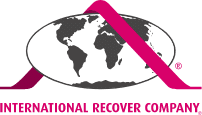March 11 is International Startup Day. But, actually, what is a start-up?
A little definition, first...
According to Wikipedia, it is a newly established innovative company, usually seeking large investment funds, with very high possible potential for economic growth and financial speculation on its future value. Its phase of research and development of innovative products, testing of ideas, validation of technology, or economic model is more or less long, before its commercial phase, and its risk of failure is much higher than that of others companies, by its innovative nature, its small size and its lack of visibility. Start-ups generally establish themselves in business incubators, business incubators or technopoles, or even in hacker houses, in innovative markets. Their number increased in particular from the 1990s, with the new economy (or digital economy, at the origin of the Internet bubble). They can be financed by various forms of venture capital, business angels, innovation mutual funds, etc.
What makes it different from a young company?
According to Steve Bank, entrepreneur in Silicon Valley, a start-up is a temporary organization looking for an industrializable, profitable business model that allows growth. A start-up is experimenting. She analyzes a new market and tests its business model. It's not yet a business per se. It can become one, or be subsumed by another, or even disappear due to lack of cash flow. A start-up is not defined by its youth but by its innovation, its enormous development prospects and its significant financing needs. Among the best-known startups, we find Twitter and YouTube. But every day, all over the world, thousands of startups launch in a garage or a garden shed, are bought out or die out.
And in Belgium, precisely?
In Wallonia, for several years, the Digital Wallonia Startup Awards have nominated the best Walloon digital and tech startups. This year, the 3 winning startups are Oncomfort (which developed a non-drug therapeutic solution to reduce patient anxiety and pain before, during and after a medical procedure), MinT (which developed the ISA solution to detect falls in accommodation structures for the elderly) and DNAlytics (which develops data mining and data analysis solutions for medical purposes).
In Flanders, each year, De Bertjes rewards several entrepreneurs. This year, the winner of the Startups category is Become (an eco-friendly e-shop)
Startups and treasury
As we have said, a start-up is defined, among other things, by significant financing needs (we often speak of millions of euros). Even once the start-up funds have been obtained (via crowdfounding or business angels for example), cash flow management remains the crux of the matter. If the start-up wants to stay on track, it must take calculated risks. Taking into account possible payment delays, or even unpaid debts, is essential. They must therefore also provide from the start a trusted partner for the recovery of their debts, because, in business as elsewhere, prevention is always better than cure.




